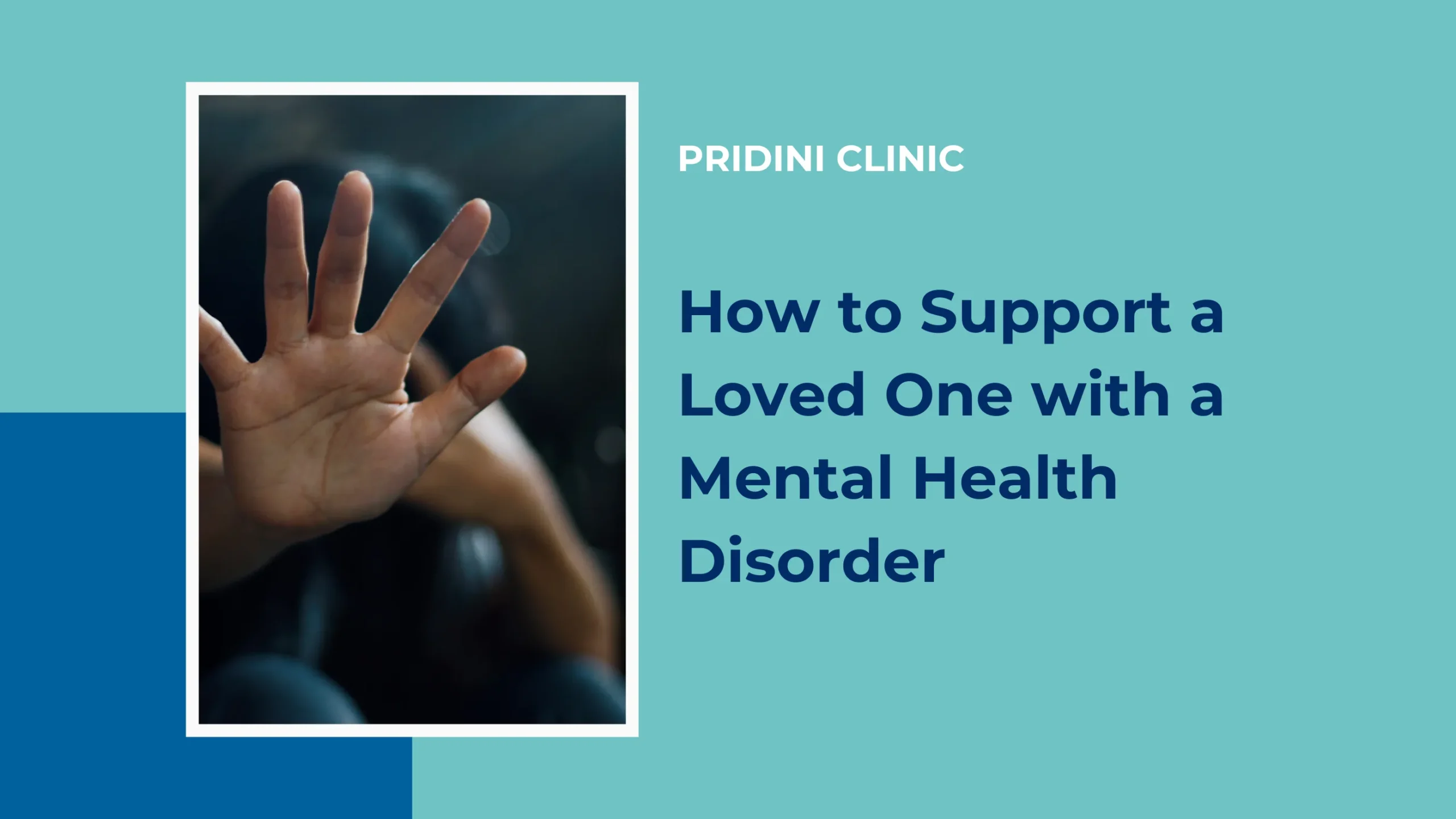
Supporting a loved one with a mental health disorder can be challenging, but your understanding and compassion can make a significant difference in their journey toward recovery. At Pridini Clinic, we believe that with the right approach, you can provide invaluable support while also maintaining your well-being. In this blog, we will discuss how to understand your loved one’s diagnosis, be a supportive listener, navigate the do’s and don’ts of offering help, recognize when to encourage professional assistance, and care for your mental health as a caregiver.
The first step in supporting a loved one with a mental health disorder is to understand their diagnosis. Mental health disorders vary widely, from depression and anxiety to bipolar disorder and schizophrenia, each with its own set of symptoms, challenges, and treatment approaches. Educating yourself about your loved one’s specific condition will help you empathize and provide more informed and effective support.
Avoid making assumptions or judgments based on stereotypes or misinformation. Instead, seek out reputable sources of information, such as mental health organizations, books, or guidance from a mental health professional. Armed with this understanding, you’ll be more capable of providing the support your loved one needs.
Being a supportive listener is one of the most valuable things you can offer someone struggling with a mental health disorder. Often, people with mental health issues feel isolated and misunderstood, so simply being there to listen can be incredibly comforting.
When listening, focus on being present and nonjudgmental. Allow your loved one to express their feelings without interruption or the urge to offer solutions immediately. Sometimes, just having someone to talk to is enough to help them feel less alone in their struggles. Reflect on what they say to show that you understand and acknowledge their experiences.
It’s also important to respect their feelings, even if you don’t fully understand or agree with them. Allow them to open up in their own time. Validating their emotions can help them feel heard and supported, which is crucial for their mental well-being.
When offering help to someone with a mental health disorder, it’s important to approach the situation with sensitivity and care. Consider the following guidelines as you offer your help:
Do:
Don’t:
There may come a time when your loved one needs more support than you can provide. If they are struggling to manage their symptoms, withdrawing from life, or showing signs of self-harm or suicidal thoughts, it’s crucial to encourage them to seek professional help. Gently suggest that they talk to a mental health professional, such as a therapist or psychiatrist, who can offer the appropriate treatment.
If your loved one resists seeking help, approach the conversation with empathy and understanding. Let them know that seeking professional support is a sign of strength, not weakness, and that you are there to support them every step of the way.
Supporting someone with a mental health disorder can be emotionally taxing, and it’s important to take care of your well-being, too. Practicing self-care is essential for maintaining your mental health and preventing burnout.
Participate in activities that help you unwind and rejuvenate, such as exercising, pursuing hobbies, or spending time with loved ones. Make sure to set boundaries and take time for yourself. Don’t hesitate to seek support for yourself, whether it’s talking to a friend, joining a support group, or consulting a mental health professional.
Remember, you can’t pour from an empty cup. By looking after your mental health, you’ll be better equipped to provide the support your loved one needs.
At Pridini Clinic, we support you and your loved ones through every step of your mental health journey. Reach out to us today to explore our comprehensive care services.

